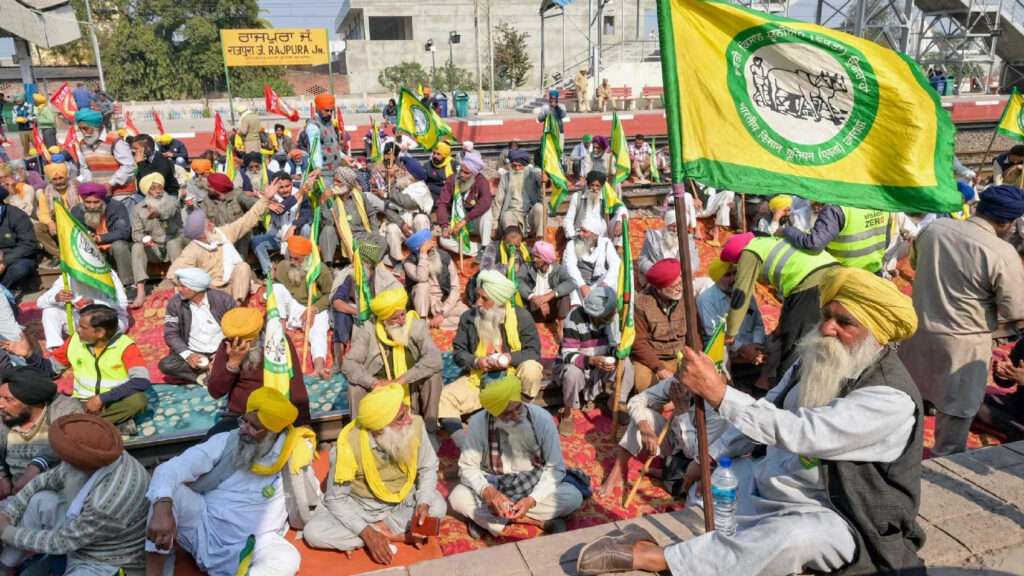
Thousands of farmers are protesting at the Delhi-Haryana border, demanding a legalized MSP for their crops.
Most of these protesting farmers are from Punjab and Haryana. As per the reports, not a single farmer union from South India is participating in this protest.
Farmers are trying hard to enter Delhi by tractors. The Haryana police are trying their best to restrain farmers at the Simbhu border, and as of now, the police are successful in holding the farmers there.
However, after the death of a young farmer at the Khanoudi border, the farmers announced that they were postponing their “Dilli Chalo March” for two days.
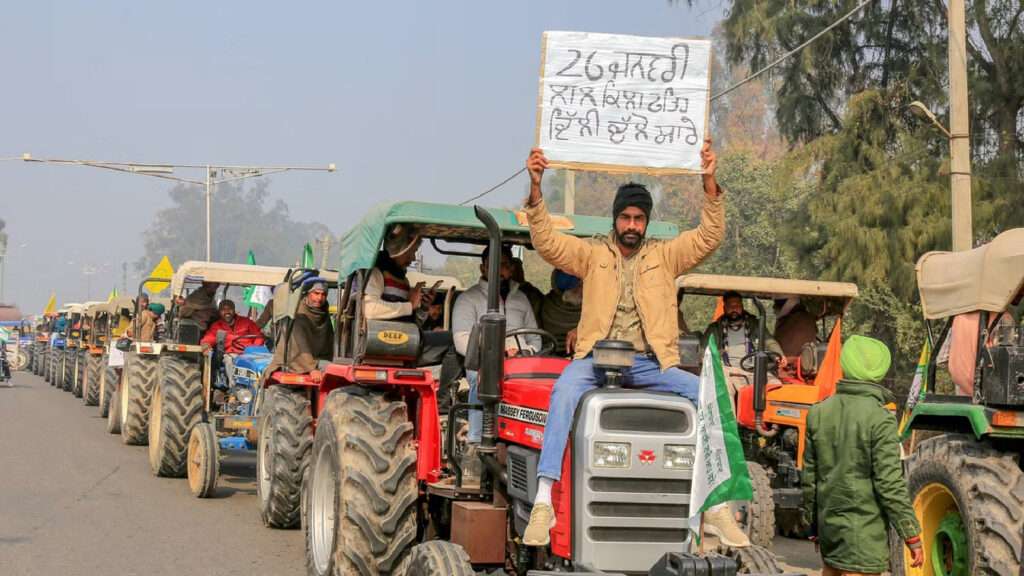
According to official data, the United Farmers Union (non-political) and the Farming Workers Union are leading the farmers protest. These two unions belong to Punjab and Haryana. Rakesh Tikait’s Indian Farmers Union is also supporting this protest.
This is a West-UP farmers union. According to this, we can assume that South Indian farmers are not interested in this farmer protest for MSP.
So, let’s get to know whether this comment is correct or not. A few days ago, more than 100 farmers were arrested at Tamil Nadu’s Thanjavur Railway Station.
Reports say that the arrested farmers are opposing the police action against protesting farmers at the Delhi border and tried to stop the train at the railway station.
Earlier this year, several farmers from Karnataka and Tamil Nadu started for Delhi, but the police successfully restrained them.
The United Farmers Union claimed that more than 100 farmers who were destined to reach Delhi and participate in February 13’s Delhi Chalo March have been restrained at Bhopal railway station.
However, except for these claims and small incidents, there is no relevant proof that any huge union of farmers from south India is interested in participating in the farmers protest at the Delhi border.
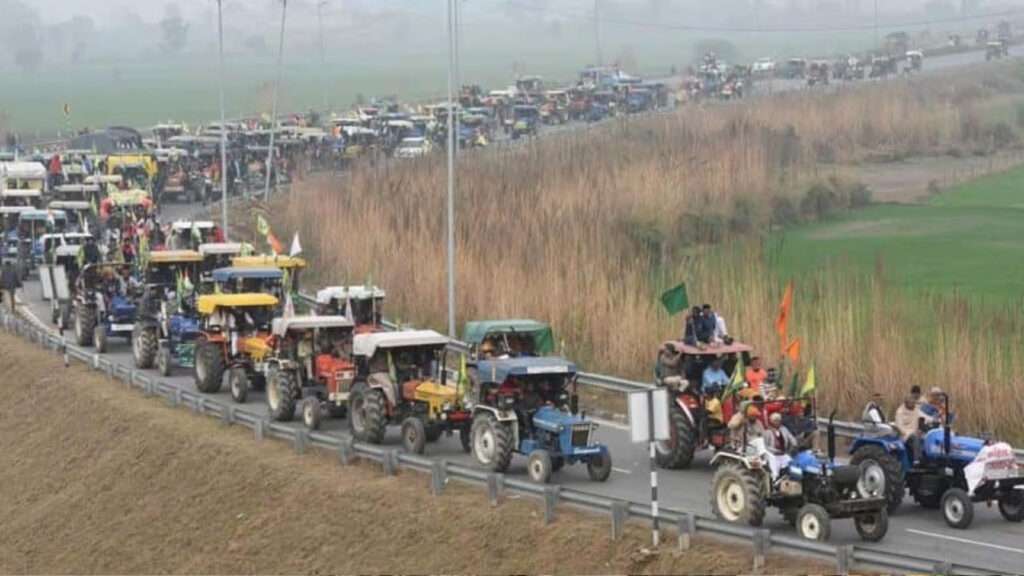
What’s the reason..?
The reason behind South Indians’s uninterest in farmers protests is the difference between the cultivation of the crops. The demand for MSP is mostly for paddy and wheat. These crops are mostly cultivated in Punjab and Haryana.
According to the data:
In the Kharif season 2022–23, the government purchased a total of 846.45 lakh metric tons of paddy at MSP. The government had spent Rs 1.74 lakh crore on this. The government had purchased the maximum amount of paddy from the farmers of Punjab.
182.11 lakh metric tons of paddy were purchased from more than 9 lakh farmers in Punjab in 2022–23, and Rs. 37,514 crore was paid for it.
At the same time, 59.36 lakh metric tons of paddy were purchased from 2.82 lakh farmers in Haryana, and 65.50 lakh metric tons of paddy were purchased from 9.40 lakh farmers in UP.
Not only this, in the Rabi season 2022–23, the government purchased 262 lakh metric tons of wheat at MSP, out of which more than 70 percent was purchased from farmers in Punjab, Haryana, and UP.
The government had purchased 121.17 lakh metric tons of wheat from about 8 lakh farmers in Punjab. Rs 25,748 crore was spent for this.
Whereas, 63.17 lakh metric tons of wheat were purchased from 3.25 lakh farmers in Haryana, and the government spent Rs 13,424 crore on this.
At the same time, 2.20 lakh metric tons of wheat were purchased from more than 81 thousand farmers in Uttar Pradesh. The government had spent Rs 468 crore on this.
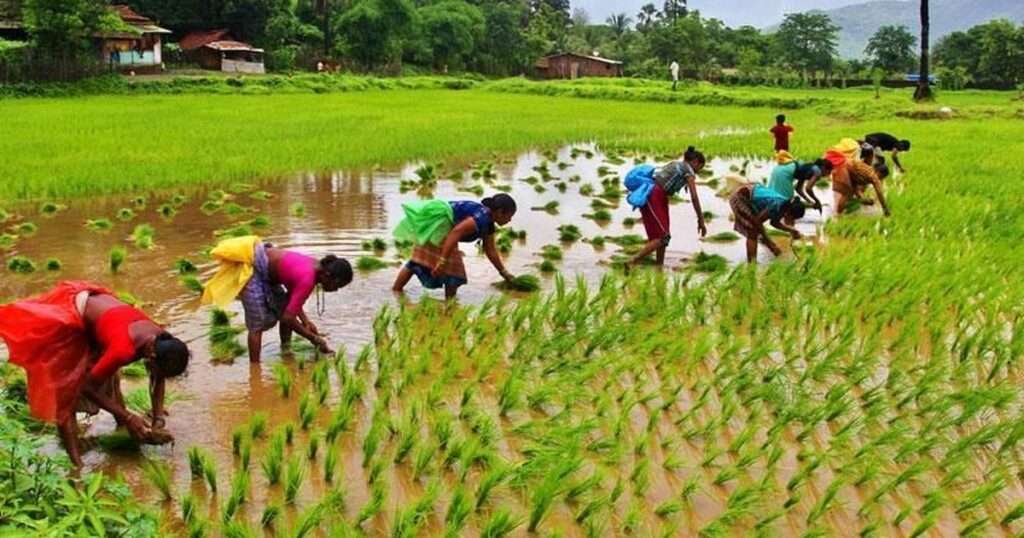
In contrast, 214.34 lakh metric tons of paddy were purchased from farmers in five southern states: Andhra Pradesh, Telangana, Karnataka, Kerala, and Tamil Nadu.
Which is 25 percent of the total paddy purchase. At the same time, the government does not purchase wheat on MSP from any southern state.
Subsequently, the southern states don’t cultivate wheat, and the paddy production here is also limited. Along with that, the central government purchases only 25% of the paddy from the southern states.
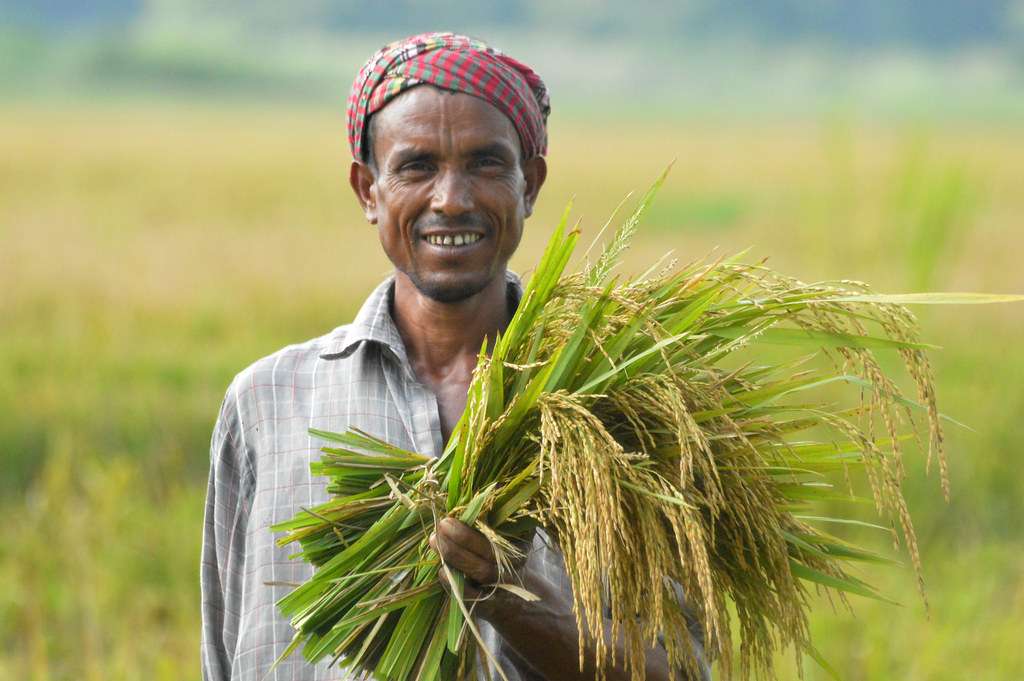
The second reason is the pattern of the Sounth Indian crops. In other states, sugarcane, paddy, coffee, betel nuts, pulses, black pepper, and cardamom-like crops will be mostly cultivated.
These crops don’t require MSP. Moreover, most of the farmers in the southern area sell their crops in government markets. Here, they will get the best price for their crop, more than the MSP.
Except for the central government markets, the coffee board and state government markets also pay farmers more than the MSP.
Furthermore, if any natural calamity strikes and the farmers lose their crop, then the state governments will compensate for the losses and waive off their loans.
Recently, the Karnataka government announced an interest waiver on 57 thousand farmer loans. Hence, the southern Indian states are not so interested in the Delhi farmers protest.





